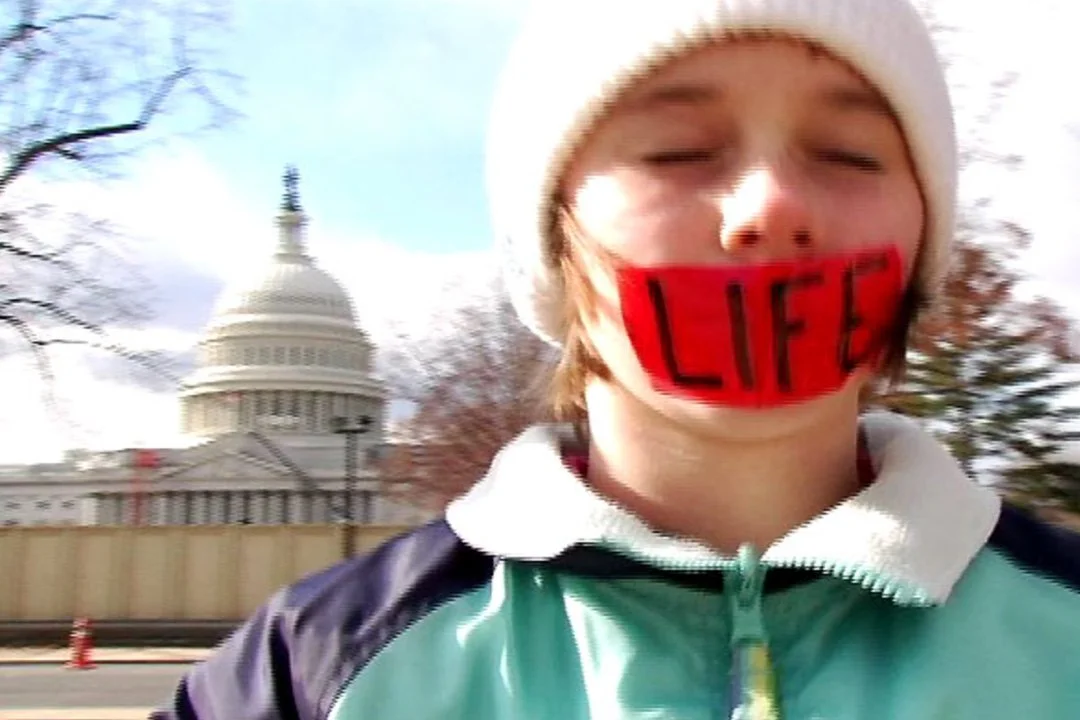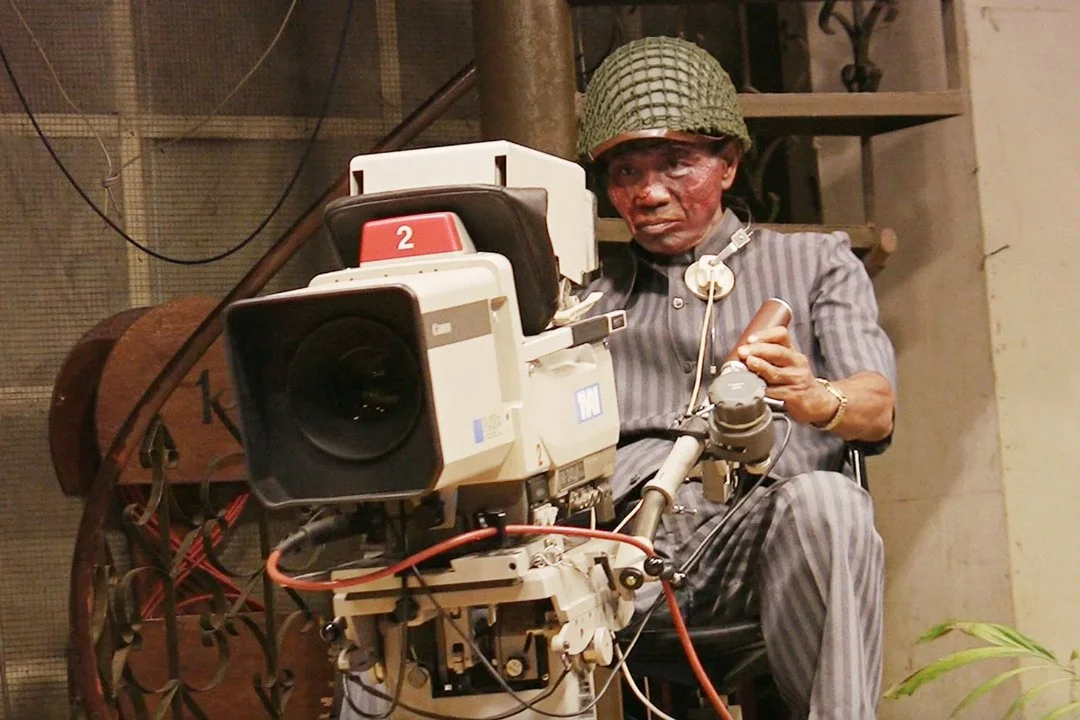UNVEILING THE MACABRE: 10 DEPRAVED DOCUMENTARIES
Sometimes life is stranger than fiction. Even the greatest artists and writers have to get inspiration from somewhere and for every Texas Chainsaw Massacre and Midsommar there is a real-life Ed Gein and Heaven’s Gate cult paving the way.
What better place to witness this beautiful and absurd experience that we call life than through the hypnotic and unsettling medium of documentary? From fundamentalist Christians brainwashing their children to the sinister minds of cannibals, GATA has compiled an extensive list of our favourite disturbing, sickening and just flat-out weird examples of human behaviour.
Jesus Camp (2006)
2006’s Jesus Camp is a disturbing probe into the phenomena of Christian summer camps and Evangelical indoctrination, asking the question, “When does faith and belief descend into indoctrination and child abuse?”
Featuring cult-like behaviour, irrational Harry Potter hate and a damning indictment of the nature of democracy, this documentary is a difficult watch for anyone who has experienced fundamentalism in religious belief.
2. The Act of Killing (2012)
One of the most unsettling and surrealist explorations of the nature of human depravity and horror, The Act of Killing follows members of the para-military involved in the mass killings of 1965-66 in Indonesia, asking them to recreate their memories of death through the medium of cinema.
This extremely meta and unflinching portrayal of mass killing blends reality and memory to terrifying effect. Outlandish and extravagant costumes, vomit-inducing acting and sneering guilt-free admissions of torture and murder fill the screen for an unforgettable experience.
3. Paradise Lost: The Child Murders at Robin Hood Hills (1996)
Since the dawn of civilisation, humanity has wrestled with the slippery tendrils of the concept of justice and how best to implement it. Paradise Lost: The Child Murders at Robin Hood Hills, is a brutal examination of the cracks in the judicial system of the United States, laying bare the experiences of both the victims’ families and the alleged murderers concerned with the infamous case of the “West Memphis Three” from 1993.
Shot over 10 months, the documentary gives complete access to both sides, exposing the bizarre rumours of satanism, the occult and ritual blood-drinking that were associated with the story. Interestingly the documentary saw the appearance of music exclusively from Metallica—the first time that the band hand given permission for their music to be used in a film.
4. Caniba (2018)
Arguably one of the most sickening cases of failures in the justice system, the murder of Renée Hartevelt at the hands of Issei Sagawa is painfully recounted in 2018’s Canniba—deeply dissecting the tortured mind of this infamous killer and his grotesque and sadistic tendencies.
While other documentaries centred on Issei Sagawa, have usually retold the horrific details of his crime— in which he murdered and cannibalised his victim, while studying abroad —Caniba deliberately omits details and backstory of the event, deciding rather to let the killer express his feelings and emotions regarding his life and crimes. A chilling experience that is only exacerbated by its characteristic close-up cinematography, bringing you too close for comfort.
5. Titicut Follies (1967)
Heavily censored for over twenty years until it was finally released in the early 90s, Titicut Follies is a grim and realistic portrayal of the plight of psychiatric patients in the state of Massachusetts. Produced by Frederick Wiseman, a Boston-born lawyer turned filmmaker, the documentary dives deep into the lives of various patients at the State Hospital for the Criminally insane. Depicting horrific scenes of men stripped naked and placed into cells devoid of furnishing, guards and doctors taunting and bullying patients and surrealist entertainment shows put on in the hospital, the documentary is a clear embodiment of the importance of investigative journalism.
6. Into the Abyss (2011)
Into the Abyss is a heart-wrenching documentary that deals with the lives of those facing the death penalty in Texas. Directed by Werner Herzog, the film is a haunting piece that expertly balances a calm tone with the horrors of the actions committed in the past. With his unusual and non-aggressive approach to the interview, Herzog manages to draw out raw and emotive accounts from the families of the victims and also those facing potentially their last few weeks on earth. An honest portrayal of the judicial system of America that asks the hard questions in regard to the legitimacy of the death penalty in modern society.
7. Mea Maxima Culpa: Silence in the House of God (2012)
While reports of sex scandals and abuses of power in the Catholic Church have been rife in the past, no documentary offers such a damming account of the personal tragedy that was inflicted upon its victims like Mea Maxima Culpa: Silence in the House of God.
The documentary follows the story of four deaf men who attempt to expose the abuse inflicted upon them by a priest in the 1960s, highlighting the subsequent cover-up by the church and exposing a murky trail of injustice and abuse leading up to the upper echelons of the Vatican itself.
The film won multiple awards upon release and was praised for its innovative portrayal of the deaf and mute community, using inventive lighting and close-up shots of the victims writing out their testimony in real time.
8. Welcome to Leith (2015)
What happens when evil moves in next door? That is the central question in Welcome to Leith, a bizarre story of neo-nazi white supremacists, love of guns and isolated towns. Set in the small town of Leith, North Dakota, home of two-dozen locals, the film follows the story of Craig Cobb, a fervent white supremacist who moves to the area to buy up land with the end goal of taking over the local government and setting up his very own neo-nazi utopia.
When the locals decide to fight back, what follows is a back-and-forth tussle of wits and sabotage, with Cobb and his gang going so far as to intimidate the town with guns, harassment and even publishing their information online in hopes of public retaliation from the white supremacist communities.
In the land of freedom and democracy, Welcome to Leith painfully lays bare the deficiencies of such a system in which people can pretty much believe, do and say whatever they want. Fascinating, disturbing and harrowing content and in the words of Eric Kohn, “a stunning portrait of First Amendment rights pushed to their extremes".
9. The Witness (2015)
Prior to the murder and rape of Kitty Genovese the concept of the “bystander effect” wasn’t a widely researched area of human behaviour, but after 38 members of the public witnessed and stood by as Genovese was murdered on the streets outside their homes, the public outcry and media attention brought the idea of human apathy in the presence of violence firmly into the foreground of mainstream attention.
The Witness revisits the story of Kitty Genovese from the perspective of her still grieving brother as he attempts to reach understanding and closure regarding the horrific circumstances of his sister’s murder and the diffusion of responsibility among those who claimed to be her neighbours.
10. Mondo Cane (1962)
Last in the list is an early example of so-called “shockumentary” or Mondo films, a subgenera of exploitation films and documentaries that looked to expose the most bizarre and taboo of subjects that exist around the world. While the film states that every scene is unbiased and objectively true, certain scenes were creatively manipulated and staged in order to shock its predominantly Western audiences. Displaying piglets being breastfed, cows being forced beer and sharks tortured by means of toxic sea urchins, while tame by today’s standards Mondo Cane, is still an interesting delve into the mindset of people in the 1960s.
Words by James Elliott











